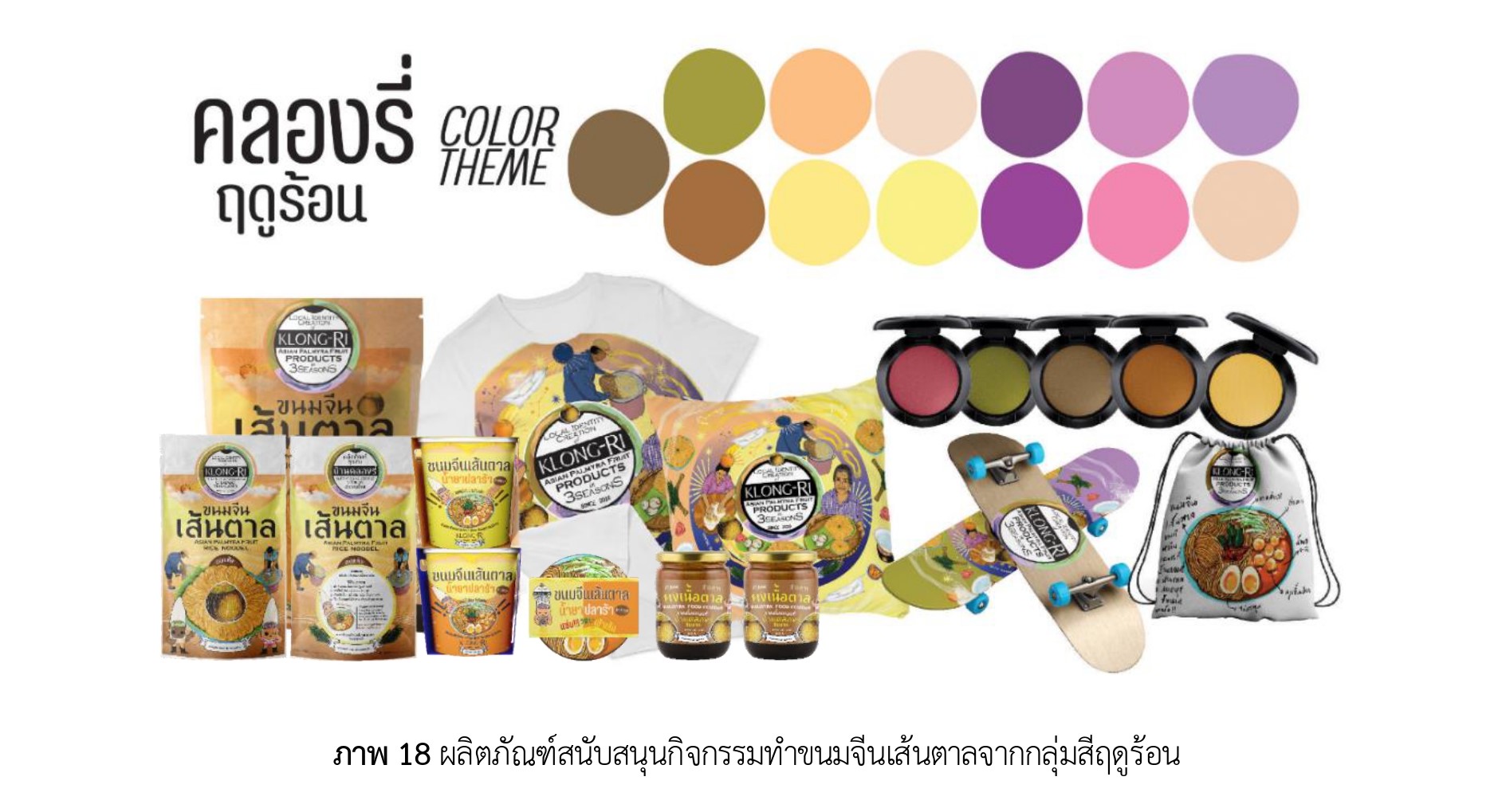In-depth Local Identities of Ban Khlong Ri Village, Chai Nat Province: Achievement of Dynamic Unique Model
DOI:
https://doi.org/10.14456/psruhss.2024.7Keywords:
Dynamic unique model, Deep local identity, Identity enhancementAbstract
This research aims to enhance endemic identity by integrating scientific and technological tools, with the goal of community product design. According to the proactive process model approach, or Dynamic Unique (DU Model), it is participatory research. The target group was the Ban Khlong Ri community, Huai Krot Subdistrict, Sankhaburi District, Chainat Province, Central Thailand. A semi-structured in-depth interview form revealed the primary identities of Ban Khlong Ri, namely rice, toddy palm and fermented fish, analysed with the second tool. The synthetic model, with 12-month, 3-season variables, found that the three identities dynamically corresponded to the way of life of the community. During a specific period, in February, all three identities were completed at the same time, and the community, therefore, used them for activities associated with Asian Palmyra Fruit Rice Noodle. This is unique in both form, process and connotation, and consistent with the tool's report, thus, synthesized into a local identity. The selection of sugar cane was then summarised for upgrading with scientific and technological processes, one of which was in accordance with the autodynamics model. The results of this experiment revealed that Ban Khlong Ri has a guideline for making palm sugar powder, dried brown vermicelli and a new colour set from Toddy palm, as measured with a Chroma meter. In summary, it is a deep, local identity colour. Primary and secondary colour combinations are available to design a visually new community product, consumption of which will occur in the future to help support the activities in making brown rice noodles and creating alternatives for visitors, in accordance with the objectives of the research.
References
กรมการพัฒนาชุมชน กระทรวงมหาดไทย. (2562). Guide Bookโครงการชุมชนท่องเที่ยว OTOP นวัตวิถี แอ่งเล็กเช็คอิน 3,273 ชุมชน. สืบค้น 21 กันยายน 2562, จาก https://shorturl.asia/8SL9G
กรมพัฒนาชุมชน. (2562). ระบบศูนย์ข้อมูลกลางเพื่อบริหารจัดเก็บและใช้ประโยชน์ . สืบค้น 21 กันยายน 2562, จาก https://bit.ly/3NVZWxd
กรมพัฒนาพลังงานทดแทนและอนุรักษ์พลังงาน กระทรวงพลังงาน. (2555). คู่มือการวิเคราะห์การอนุรักษ์พลังงานสำหรับวิสาหกิจขนาดกลางและขนาดย่อม. สืบค้น 21 กันยายน 2562, จาก https://shorturl.asia/odcSm
กาญจนา แก้วเทพ. (2560). เครื่องมือทำงานวัฒนธรรมชุมชนและสื่อพิธีกรรมศึกษา. กรุงเทพฯ: ศูนย์มานุษยวิทยาสิรินธร (องค์การมหาชน).
จุฑาทิพย์ ภัทราวาท. (2565). การมีส่วนร่วมในชุมชนเพื่อการพัฒนาเศรษฐกิจอย่างยั่งยืน. สืบค้น 8 กรกฎาคม 2565, จาก https://www.cai.ku.ac.th/article/T1_Community_Engagement.pdf
ทรงวุฒิ เอกวุฒิวงศา. (2562). การคิดเชิงอนาคตเพื่อการออกแบบ. กรุงเทพฯ: มีนเซอร์วิสซัพพลาย.
ทัศนีย์ ประธาน, คนึงนิจต์ หนูเช็ก, พรทิพย์ เสี้ยมหาญ, และสุวัจนี เพชรรัตน์. (2561). การจัดการสินค้าและบริการในธุรกิจค้าปลีกสมัยใหม่ประเภทซูเปอร์มาร์เก็ต. วารสารวิทยาการจัดการ มหาวิทยาลัยราชภัฏสุราษฎร์ธานี, 5(2), 131-153.
ประพัทธ์พงษ์ อุปลา, และสมลักษณ์ บุญณรงค์. (2560). การสร้างกระบวนการออกแบบอย่างมีส่วนร่วมในการปรับปรุงสภาพแวดล้อมทางเท้าและระบบป้ายสัญลักษณ์งานจราจร กรณีศึกษาโรงเรียนอนุบาลระยอง. วารสารวิจัยเพื่อการพัฒนาเชิงพื้นที่, 9(1), 52-69.
วิรัตน์ เตชะนิรัติศัย. (2563). กลยุทธ์ทางการตลาดเพื่อรองรับมาตรฐาน ไทยแลนด์ 4.0. สืบค้น 6 พฤศจิกายน 2565, จาก http://www.thonburi-u.ac.th/journal/Document/12-29/Journal12_29_4.pdf
ศุภวิชญ์ มาสาซ้าย, และศิริวิมล สายเวช. (2560). การออกแบบภาพลักษณ์เพื่อเพิ่มมูลค่าผลิตภัณฑ์ข้าว จ. ชัยนาท. กรุงเทพฯ: มหาวิทยาลัยราชภัฏจันทรเกษม.

Downloads
Published
How to Cite
Issue
Section
License
Copyright (c) 2024 Humanities and Social Sciences Journal of Pibulsongkram Rajabhat University

This work is licensed under a Creative Commons Attribution-NonCommercial-NoDerivatives 4.0 International License.
Any articles or comments appearing in the Journal of Humanities and Social Sciences, Rajabhat Phibulsongkram University, are the intellectual property of the authors, and do not necessarily reflect the views of the editorial board. Published articles are copyrighted by the Journal of Humanities and Social Sciences, Rajabhat Phibulsongkram University.








